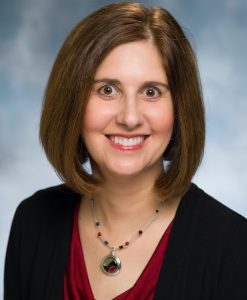2025 Annual Meeting Recap

The ASPO 2025 Annual Meeting, held April 6-8 in Philadelphia was a success, showcasing the society’s resilience and forward-thinking spirit. This year’s program featured symposia, Looking Back Thinking Forward sessions, and “Best Of” presentations—while adapting to changing circumstances by sharing recorded talks from those unable to attend in person.
Thoughts from Dr. Carolyn Heckman, 2025 Annual Meeting Co-Chair:

“Well, I’m a bit biased as the program co-chair, but I’ve gotten a lot of positive feedback about the conference this year. We started off to the backdrop of the “Hands Off” protest in the City of Brotherly Love where the Declaration of Independence was signed, reminded our ASPO President Dr. Anita Kinney. Convening in person seemed to be just what people needed as members at all stages of their careers informed and inspired one another. The audience was bolstered by Penn’s Dr. Richard Wender’s Keynote: Seven Trends That Will Determine the Future of Cancer Control. His presentation ended with a heartfelt original song, We Will Be There, followed by a rousing standing ovation. I surely “Will Be There” at ASPO’s 50th anniversary in Denver in 2026 celebrating the accomplishments of our field and the relentless pursuit to advance evidence-based cancer prevention for all.”
Thoughts from Anjali Vasavada, Doctoral Trainee & First Time ASPO Attendee
 “In a time of uncertainty in health research, going to ASPO 2025 in Philadelphia, PA felt rejuvenating. This year, I was selected to give a 5-minute flash talk in the session “The Untapped Potential of Lung Cancer Screening”. As a doctoral trainee and first time ASPO attendee, I was nervous about attending this conference with many accomplished cancer researchers. I was instead met with extreme warmth, support and friendliness from fellow attendees – whether it was their first time, or 30th time at ASPO!
“In a time of uncertainty in health research, going to ASPO 2025 in Philadelphia, PA felt rejuvenating. This year, I was selected to give a 5-minute flash talk in the session “The Untapped Potential of Lung Cancer Screening”. As a doctoral trainee and first time ASPO attendee, I was nervous about attending this conference with many accomplished cancer researchers. I was instead met with extreme warmth, support and friendliness from fellow attendees – whether it was their first time, or 30th time at ASPO!
What stood out the most to me was ASPO’s dedication to evolving alongside the current landscape of oncology research. I attended the session “Pragmatic Trials and Implementation Science in Cancer Prevention and Control” on Day 3, which featured talks from two anthropologists, highlighting the multidisciplinary approach ASPO is taking toward addressing cancer prevention. As a young researcher interested in things like implementation science and qualitative research, it was refreshing to see my interests represented at a cancer conference, which have traditionally been more clinical.
Lastly, I applaud the ASPO program committee for tackling some harder topics during the meeting. Karen Wernli and Carolyn Heckman’s moderated discussion on Unprecedented and Uncertain Times on Day 1 was a compassionate way to address the elephant (literally and figuratively) in the room, which helped us all come together to realize our shared purpose and affirmed that we need to rely on each other during this uncertain season. My favorite session was the Misinformation and Infodemics session on Day 2, led by K. Viswanath. Given the widespread availability of health information online, it was powerful to hear this session as a call to action for cancer researchers to consider strategies to mitigate misinformation, especially now.
Overall, my first time at ASPO was extremely memorable, and I look forward to attending for many years to come!”
